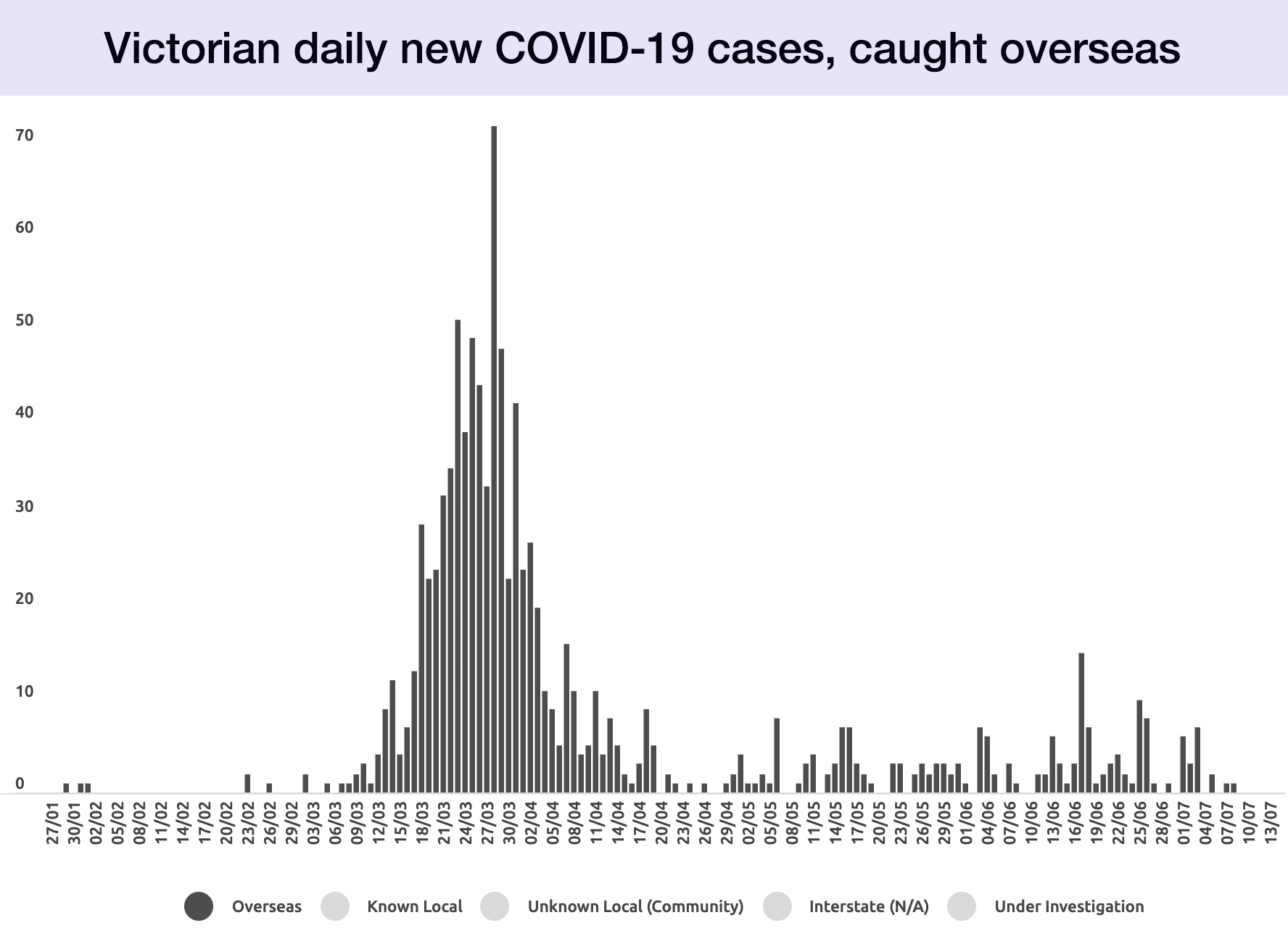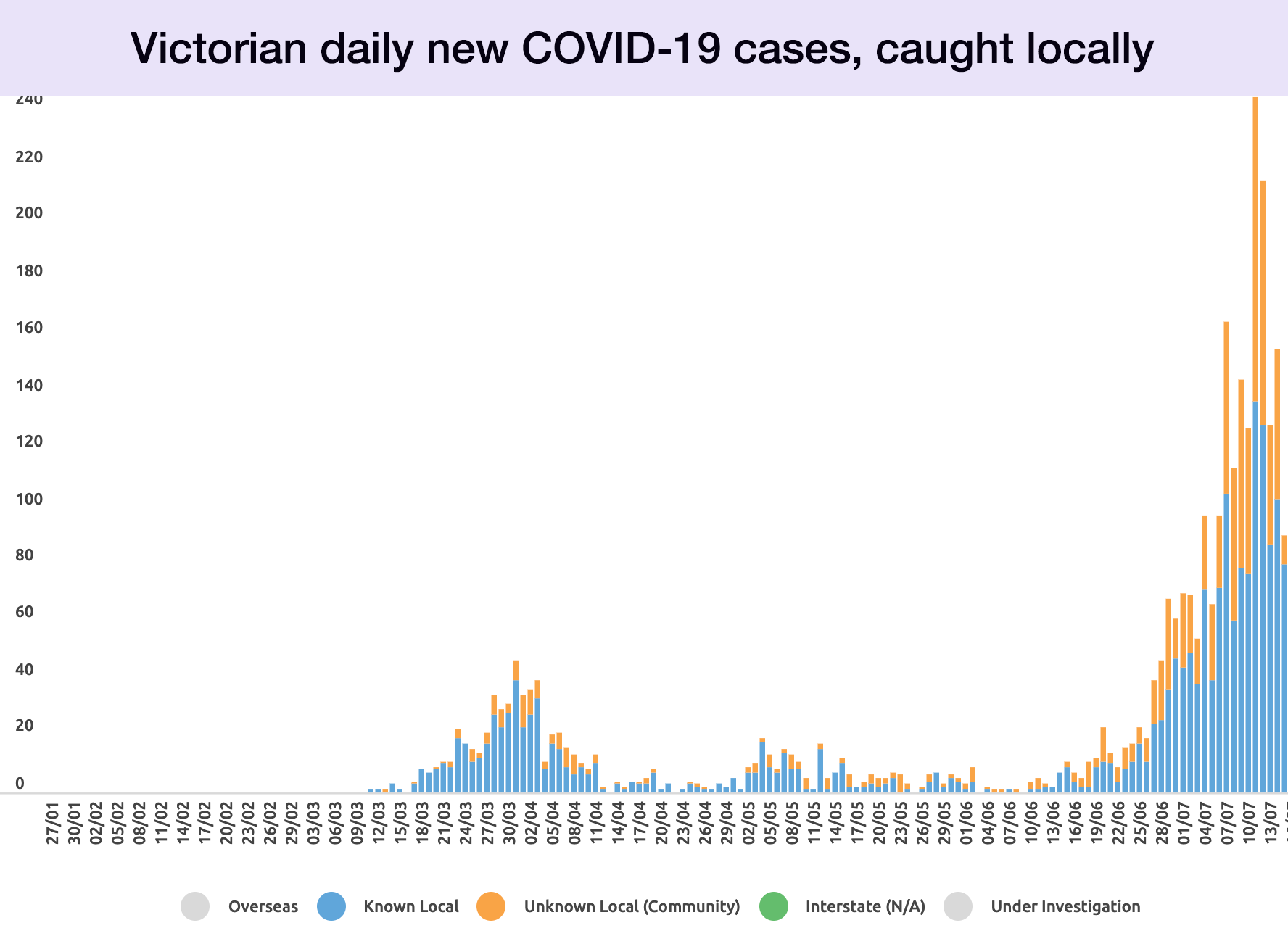Charles Gutjahr
Melbourne, Australia
Pandemic words week #2: Second Wave
Second Wave
What term could be more appropriate for my second week of judging pandemic words than 'second wave'? After all we're in one right now, right?
This is another term that I'd never heard before this pandemic, but now it is everywhere — and I like it! It's a good one because it sets expectations in our minds. Every time we hear second wave it is a succinct reminder to expect that this virus can come back, and hopefully that encourages people to stay vigilant and keep up the habits which reduce transmission.
I reckon it's good for our mental health too. Imagine if we strutted around in Australia with a big sign saying 'Mission Accomplished' because we'd almost eliminated the virus here by June... how would we feel when it surged again in July? It would be a lot harder to cope with if you thought that was the end of the pandemic. Hopefully all the talk of a second wave means people were mentally prepared for this surge and don't feel crushed by it. And you know what waves do? Waves pass, waves don't last forever. Calling it a wave also gives hope that this too will pass.
There is a slight catch, though, in that the term isn't technically accurate. First up, Dr Norman Swan:
Increasingly the experts in this area say we should stop talking about second wave because 'second wave' applies to influenza and a different environment. Here we are really just talking about spikes, and we are definitely in a second spike.
The World Health Organization has been stressing recently that there is no specific definition of a second wave. It seems like the WHO feels people are misusing it, using second wave to describe what is really just the expected spikes of a first wave.
Then there is the problem that second wave implies a repeat of what happened last time... but this new surge in Victoria is very different. Have a look at these graphs from covid19data.com.au:
The first peak in March-April is mainly Victorians who caught the virus overseas:

The new peak in July is mainly Victorians who caught the virus locally:

The two peaks have very different causes. It would be a mistake to treat this surge as just a repeat of last time, but perhaps the term could lull people into thinking that.
Still I think second wave is a good term. Sure the term isn't being used accurately, and we're perhaps not technically in a second wave here in Victoria yet. It doesn't matter. I think the value of second wave is not in describing what is, but in describing what could be.
